Thank Phonebloks for Google's Project Ara
How a 'phone worth keeping' influenced Google's smartphone 'designed exclusively for 6 billion people'
Sign up for breaking news, reviews, opinion, top tech deals, and more.
You are now subscribed
Your newsletter sign-up was successful
Since its unveiling in late 2013, Project Ara, now overseen by Google, has drastically improved in operability and has matured into the sleek appearance with the newest prototype, dubbed "Spiral 2".
What's more, time has allowed for some innovative module ideas to be thought up. At Project Ara's developer conferences, established tech firms like Sennheiser and Toshiba have shown off plans for jumping into the modularity ring. But the real promise comes from the developers, who are creating more out-of-the-box modules. Particularly, ones geared toward healthcare solutions.
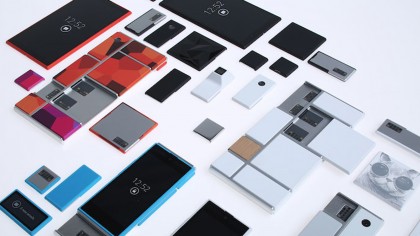
"It's in the interest of many to create modules aimed at healthcare. A lot of people don't really care about having a camera on their phone, but they'd rather have a blood glucose meter."
These ideas aside, Hakkens thinks the surface of potential has barely been cracked. Because of the phone's inherent openness, however, this could quickly change.
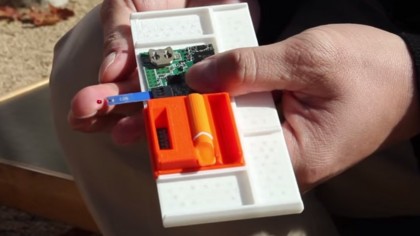
"Modularity in phones right now is like the App Store when it launched," he said "At first, you couldn't possibly imagine all of the unique applications that developers would create, but … you can already see it now with companies brainstorming and producing prototype modules … This is a huge, untapped market."
Different paths
Phonebloks deserves recognition for building a massive amount of interest for modular smartphones. But with Project Ara, the rest of the cards are in Google's hands.
Hakkens outlined the Android maker's plan for the modular phone: "Google set a timeline of two years [from 2013-2015] to see if it's actually possible to launch a modular phone. Then, they'll do a test run somewhere to see if people understand the modular concept and see how it sticks, if it runs well, etc."
Sign up for breaking news, reviews, opinion, top tech deals, and more.
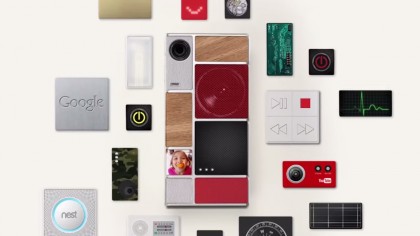
Google is, in fact, looking to do a trial run of Project Ara in Puerto Rico at some point in 2015. How that turns out will likely determine when (or if) a widespread release of the modular phone will happen.
Hakkens has been thrilled to be a part of making his dream into a reality, but he's accepted that during its transformation, the "phone worth keeping" has taken a direction he hadn't planned.
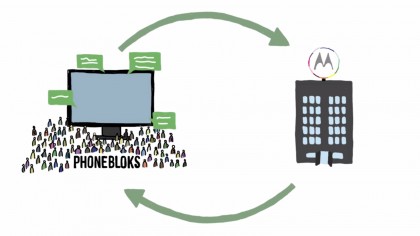
"The main reason that Phonebloks exists is to reduce waste, but this alone doesn't totally align with Google's interests," he said. "In the end, some of our ideas aligned, but not all of them."
I asked Hakkens to expand on this misalignment. He offered a clue as to why Project Ara ditched the Phonebloks's eco-centric focus in favor of customization, or what Hakkens called the "sexier" pitch, that Google has pursued while building the phone "designed exclusively for 6 billion people".
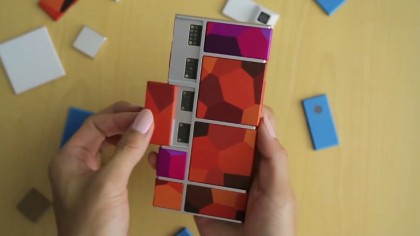
"The roots of the personalization [of Project Ara] could be because the project began at Motorola," he said. "They were primarily interested in how they could make a truly 'personal' phone. That's always been their side of the story. That's why they started the project - I just helped."
Hakkens stays busy working on new design projects, but he and his core team are constantly collaborating with the Phonebloks community to refine their hopes for modular phone of the future.
"One of the main things we do is give people insights, share updates and videos on our progress," he said.
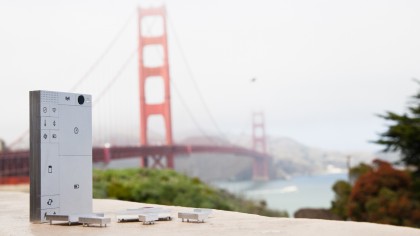
Regarding future involvement with Project Ara, Hakken stated, "We [Phonebloks] are independent from Ara, but we really like what they're doing with the homebrew community, so we are still close partners.
In the end, we really like what they're doing regardless of whether their emphasis was on personalization or not. Either way, they are developing a modular phone."

Cameron is a writer at The Verge, focused on reviews, deals coverage, and news. He wrote for magazines and websites such as The Verge, TechRadar, Practical Photoshop, Polygon, Eater and Al Bawaba.